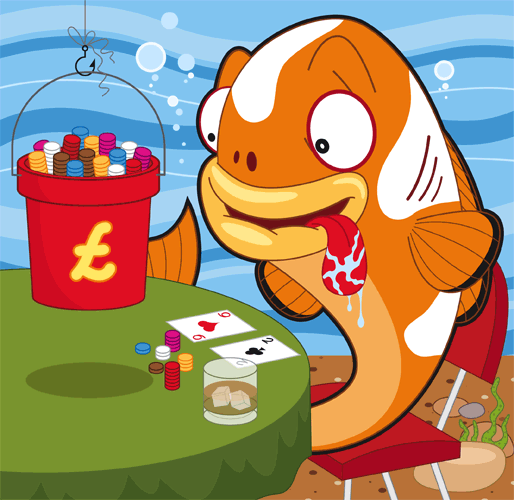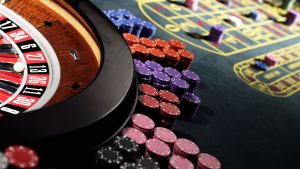Roulette is one of casino gaming’s biggest staples. It’s right up there with poker, blackjack, craps and slots in this regard. But for all of its prominence in society and popular culture, there’s quite a bit of roulette-related mythology that the average person has no knowledge of. If you’re among that group, then you’ve come to the right place. Just sit back, relax, and read on to get yourself in the loop—or in this case, wheel.
- The Devil’s Wheel
Have you ever wondered why a roulette wheel is numbered from 0-36 in the European version of the game, and 00-36 in the American edition? Isn’t it a bit of a random designation? And why would it use 0 or 00 instead of 37 and 38?
Well, just do the math.
Added together, the numbers on both types of roulette wheels have a sum of 666—also known as “the number of the Beast,” and a symbol that is commonly associated with the Antichrist and devil. As legend has it, a pair of French brothers named François and Louis Blanc, who are responsible for the invention of the single-zero game, struck a deal with the devil for the secrets of roulette, and used it to popularize the Monte Carlo casinos they ran. The numerical coincidence adds to the mystique of it all and has helped the nickname “The Devil’s Wheel” stick through the years.
- No-Go in Copper and Golden States
If you’ve arrived at a casino in Arizona or California hoping to play some traditional roulette, you’ll be somewhat disappointed. State laws prohibit all gambling games where the outcome is decided by dice or balls, meaning that roulette is off the table in these sunny locals.
Or is it? Although the ‘wheel and ball’ method of roulette playing has been banned in both cases, California eventually worked around it by originating its own alternative: California Roulette. It’s played identically to roulette, except instead of results being determined by the ball position on the wheel, that process happens with a deck of 38 cards that mimic the wheel’s probabilities. California Roulette gets played in Arizona as well, as does video roulette, which makes the cut, legally speaking.
- Easy to Win, Impossible to Game
Roulette is pretty winnable when your sole objective is not to lose. Any bet involving half of the eligible choices has a 48.65 per cent win probability with a single 0 wheel and a 47.37 win probability with a 00 wheel. Other bets obviously get dicier—and more lucrative—but the basic bet is a nice option for risk-averse gamblers.
Where it differs from other casino games like poker and blackjack is that there is no way for players to gain an intellectual edge without rigging the system. No card counting equivalent exists because roulette is a random exercise where the only certainty is probabilities. The only ways to swindle a roulette table are to physically alter the wheel, work in conjunction with the dealer, or distract the authorities and steal chips—all of which are pretty much guaranteed to get you arrested.
When you play online, just make sure the casino is legitimate. Otherwise you won’t end up seeing any of your winnings, no matter how well you do.
- The Martingale System
The Martingale System is a common roulette tactic that arose as a way of mitigating risk for bettors. The idea is that they should always follow up a losing bet with a bet worth double the value of the first one. That way, even if it takes a while, they will always get back to even money—or get a massive payout if they are betting on a single number.
Some people swear by the flawlessness of the Martingale System. They shouldn’t. Even bettors who are making relatively safe bets risk climbing into a large hole pretty quickly. That’s just the reality of following a betting system that depends on exponential growth. Wealthy bettors may not be fazed by this. If they have enough capital to weather a series of unforgiving spins, then they will be fine once a spin eventually does go their way. However, even wealthy gamblers are foiled by tables that have betting limits, meaning that the Martingale System will only be feasible up until a certain point.
- Record and Oddities
It’s only natural that a game invented over 200 years ago will have some notable records and oddities. Here are three that really stand out.
As covered earlier, the odds of winning a colour bet are pretty good. In a handful of spins, it would be pretty unlikely to not have both red and black come up at least once each. But one time at a casino in Bristol, England, the table reportedly experienced 36 consecutive red spins, which remains a record. It’s situations like this that make the Martingale system vulnerable.
Even more unlikely is the record for consecutive spins of a single number, which was set in Las Vegas’s Rio All Suite Hotel at a table where 19 red was spun seven times in a row. The odds of that happening are an estimated 1 in 114 billion.
What is perhaps the most high-stakes spin in roulette history is that of Ashley Revell, a British man who sold all of his possessions and clothes, and took the US$135,300 that constituted his life savings and bet it all on red. And he actually won! The ball landed in 7 red and Revell walked away with $270,600 in his pocket.






